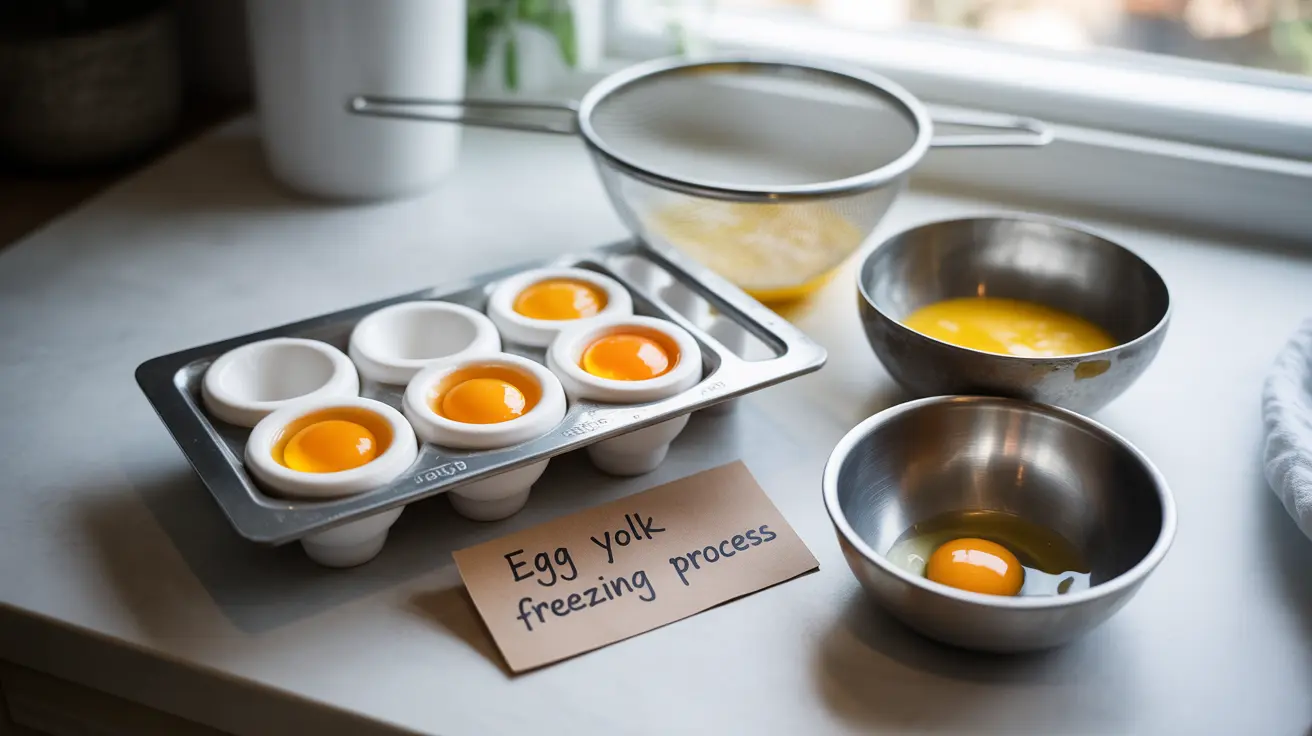Many home cooks and food enthusiasts often wonder about the best ways to preserve eggs, especially when dealing with an abundance of fresh eggs. Understanding proper egg storage methods, including freezing, is essential for reducing food waste and maintaining a ready supply of this versatile ingredient.
While freezing eggs can be an excellent preservation method, it's crucial to understand the correct techniques to ensure food safety and maintain egg quality. Let's explore the ins and outs of freezing eggs, including what works, what doesn't, and the best practices for optimal results.
Why You Can't Freeze Eggs in Their Shells
Despite what some might think, freezing eggs in their shells is not recommended and can be dangerous. When egg contents freeze, they expand, causing the shells to crack. This can lead to bacterial contamination and make the eggs unsafe to consume.
Additionally, the texture of eggs frozen in their shells becomes rubbery and unusable for most cooking purposes. The yolks can become gel-like and won't blend properly when thawed.
The Correct Method for Freezing Eggs
Preparing Eggs for Freezing
To properly freeze eggs, you'll need to remove them from their shells and follow these steps:
- Break eggs into a bowl
- Beat them gently to combine (if freezing whole eggs)
- Strain through a fine-mesh sieve to remove chalazae
- Add a small amount of salt or sugar (½ teaspoon per cup of eggs) to prevent graininess
- Package in freezer-safe containers or ice cube trays
Freezing Different Egg Parts
You can freeze egg whites, yolks, or whole eggs separately:
- Egg whites: Freeze as is in ice cube trays or small containers
- Egg yolks: Mix with either salt or sugar to prevent them from becoming gel-like
- Whole eggs: Beat together and add preservative as mentioned above
Proper Storage and Thawing Methods
Properly frozen eggs can last up to one year in the freezer when stored at 0°F (-18°C) or below. Label containers with the date and number of eggs to track freshness and portions.
Thawing Guidelines
To thaw frozen eggs safely:
- Transfer from freezer to refrigerator overnight
- Never thaw at room temperature
- Use within 24 hours of thawing
- Do not refreeze previously frozen eggs
Using Frozen and Thawed Eggs
Thawed frozen eggs work best in:
- Baked goods
- Scrambled eggs
- Omelets
- Quiches
- Frittatas
Frequently Asked Questions
Can you freeze eggs in their shells safely without causing cracks or spoilage? No, eggs should never be frozen in their shells. The expanding contents will cause the shells to crack, leading to potential bacterial contamination and spoilage.
What is the correct method to freeze eggs for later use? Remove eggs from their shells, beat them if freezing whole eggs, add a preservative (salt or sugar), and store in freezer-safe containers. Label with date and quantity.
How do you thaw frozen eggs properly to maintain their texture and quality? Thaw frozen eggs overnight in the refrigerator, never at room temperature. Use within 24 hours of thawing for best results.
Can you freeze cooked eggs like hard-boiled yolks and whites? It's not recommended to freeze cooked eggs as their texture becomes rubbery and unpalatable when thawed.
How long can eggs be safely stored in the freezer after being removed from their shells? Properly stored frozen eggs can last up to one year in the freezer when kept at 0°F (-18°C) or below.




